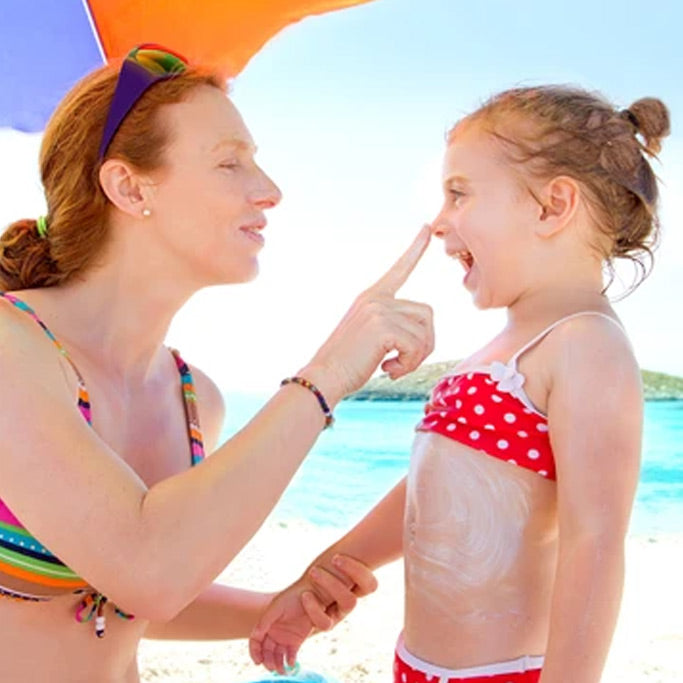
Summer Skin Protection 101
Share

We all love summer - bare feet, beach parties, outdoor pools, garden BBQs, water rafting. While we are enjoying those fabulous summer activities; we also expose our skin to the sun, or more importantly, the effect of radiant rays of the sun. There is no question most skin cancers are related to sun exposure, so wearing sunscreen is essential during summer. When it comes to sunscreen, we have lots of options, and maybe lots of questions. Read on to find some answers.
Let’s start with the basics. What is SPF? SPF stands for Sun Protection Factor, which measures sunscreen protection from UVB rays, the kind that cause sunburn and contribute to skin cancer. However, SPF does not measure how well a sunscreen will protect from UVA rays, which are also damaging and dangerous. Then what does the number mean? We see SPF 15, SPF 30, SPF 45, etc. on different sunscreen products. Here's how it works: If it takes 20 minutes for your unprotected skin to start turning red, using an SPF 15 sunscreen theoretically prevents reddening 15 times longer - 300 minutes. Many people think that SPF 30 is twice as good as SPF 15, but that is not the case. SPF 15 sunscreen blocks 93% of UVB radiation, SPF 30 sunscreen blocks nearly 97%, and SPF 45 sunscreen blocks about 98%.
So, SPF protects us from UVB, what about UVA? There is no rating to tell you how good a sunscreen is at blocking UVA rays, but we can pay attention to the ingredients. Look for a sunscreen that contains Titanium Dioxide, Oxybenzone, or Avobenzone. Any of these ingredients will absorb UVA.
Can I apply sunscreen to my kids?
The sensitive skin of children is easily irritated by adult sunscreens, it is a good idea to choose a sunscreen specifically made for children. People who have sensitive skin or skin conditions like rosacea may also benefit from using sunscreens designed for children. Go for titanium dioxide instead of chemicals like para-aminobenzoic acid (PABA).
Some tips of applying sunscreen:
- Apply liberally 15 to 30 minutes before sun exposure.
- Don't forget the easy-to-miss spots, like the tips of your ears, your feet, the back of your legs, etc.
- Reapply sunscreen at least every 2 hours, and more often if you're sweating or swimming.
- Wear sunscreen whenever you are out during the day - and not only when it's hot and sunny.
Summer is already around the corner. Get prepared for the sunshine. DermaSoleil Natural Sunblock simply satisfies all your needs for sunblock. It is biodegradable, water resistant, non-greasy, non-irritating, PABA free, and contains UVA-UVB sunscreens. In fact, DermaSoleil is one of the few sunblock lines that can be used in regulated areas where there is a concern of protecting the biological ecosystem. With ingredients such as Vitamin A, C, E, and Aloe Vera Gel, DermaSoleil will also enhance your skin's appearance by increasing elasticity, moisture level, and firmness and help to prevent premature aging and wrinkling of skin due to sun exposure.
DermaSoleil Natural Sunblock for Adults: http://www.dermamed.com/collections/sunblocks
DermaSoleil Natural Sunblock for Kids: http://www.dermamed.com/collections/baby-sunblock
